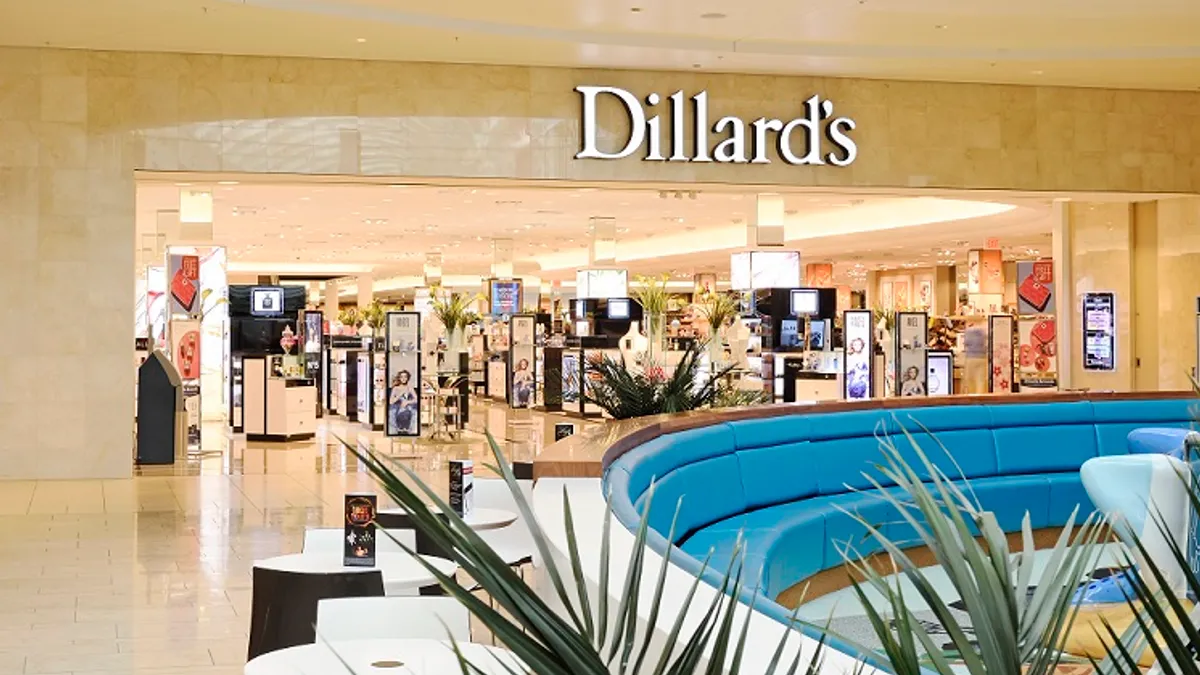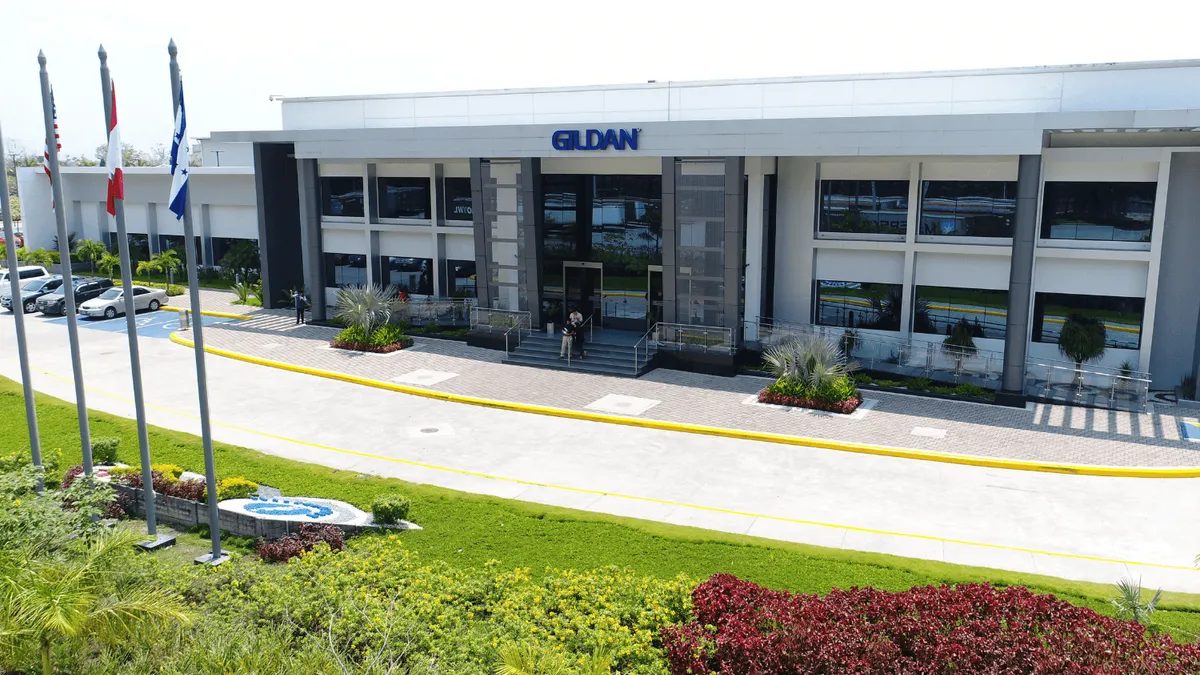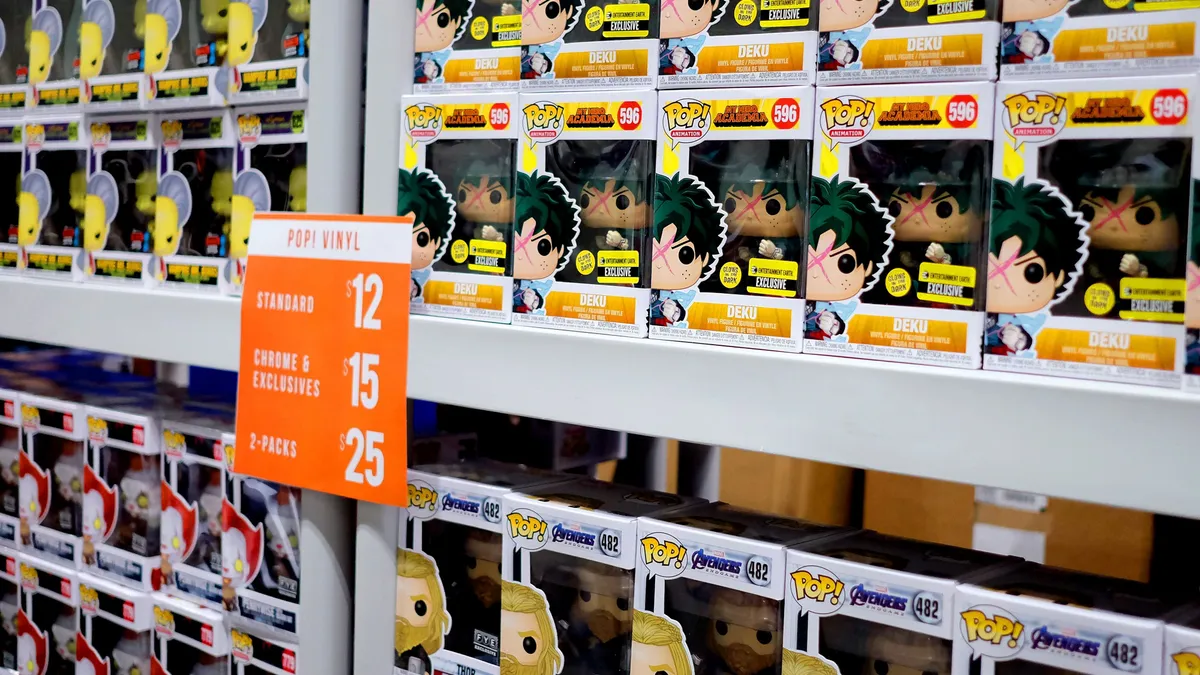GameStop may have unlocked a 1-up in a tumultuous 2020.
The retailer started the year in a deep hole and things only got worse. GameStop's sales fell by nearly 30% last year. Holiday sales last year were down more than 27%. Multiple teams of credit analysts gave the company downgrades while raising concerns about the position of GameStop, with its 5,000-plus stores, in a sector increasingly becoming digitized.
It had major problems in the short term, too. Gamers have been holding back on new software and accessories purchases as they await the next generation of video game hardware. That effect has done much to hammer GameStop's sales, the company and executives have said after multiple quarters. That means the coming releases could determine the retailer's place in the market, at least for the time being.
But the long, painful wait for the next gen is finally winding down. GameStop announced Wednesday that it is now taking pre-orders for the Sony PlayStation 5, along with other outlets.
The excitement over pre-orders created a frenzy. Orders sold out and websites went down, including GameStop's, according to customers.
Snafus aside, the excitement over pre-orders could bode well for GameStop going into the final months of 2020 and into next year. Jefferies analysts raised their price target for the company's shares citing "headline events surrounding next-gen console launches," including Sony's. Microsoft this week also unveiled prices and dates for the next generation of Xbox.
"As soon as Sony's event ended, retailers unlocked their preorder landing pages," the Jefferies analysts, led by Stephanie Wissink, said in an emailed note. "GameStop participated in this initial surge alongside major retailer peers. Within an hour, our attempts to pre-order across Walmart, Target, and GameStop were met with 'sold out' notifications."
The analysts, monitoring social media, also said that gamers have been expressing excitement around new PS5 titles and other features related to the release.
In a sign of confidence, S&P Global analysts this week lifted a "CreditWatch" on the company, a sign that they don't anticipate any pending downgrades, and they issued a stable outlook for GameStop going forward. The analysts have a B- rating for the company.
S&P analysts said that they expect the retailer's operating performance to improve late this year as the next generation of consoles go on the market, as well as GameStop's signal to the market that it will retire notes due next year at face value rather than below the debt's initial promise.
Analysts led by Wissink said previously that GameStop "has clear advantages as a destination for gamers but it's still somewhat unclear how the company will benefit from that role financially in the next-gen console cycle." To succeed, GameStop will need to take advantage of its "domain expertise," the analysts said, adding that maintaining relevance and pushing growth requires GameStop to tap into "next-gen digital, e-sports, adjacent gaming forms, & content tied revenue streams."
'Increasing competitive threats'
None of this is to discount the volatility of 2020 or the uncertainty that awaits GameStop in the years to come.
As for this year, the pandemic has had a duel effect for the retailer. On the one hand, consumers stuck at home have been buying games as well as accessories for home-based work and schooling. But it has also hurt sales, forcing GameStop's stores to close in the spring and decreasing traffic thereafter. Online sales in the second quarter rose a whopping 800%, but that still wasn't enough to offset declines in overall sales, which fell nearly 27% in Q2.
As S&P analysts pointed out, GameStop is still very much bound to brick and mortar with its thousands of stores, as well as bound to physical products. "GameStop's efforts to diversify its business have led to mixed results, and it is still heavily exposed to physical video gaming products, which we believe accounts for a majority [of] revenues," S&P analysts said.
As physical sales decline, GameStop is ramping up closures. This year it expects to close up to 450 stores, and more are likely to come.
"Increased competitive threats amid continued growth in digital distribution is among other risks unique to GameStop," they added. "Moreover, we continue to think GameStop is vulnerable to the video game industry's highly cyclical nature, its lack of supplier diversity, and its dependence on customer acceptance and timing of new titles."
How exactly GameStop responds to the digitization of its core product over the coming years, and the traction those efforts get with customers, will determine the company's fate. Comparisons with other physical media retailers are easy. Blockbuster, Borders, Hastings — the list is long of media retailers to disappear as the form and/or distribution of their core products went digital.
So far, GameStop has been banking on becoming a social hub for gamers as well as leaning on partnerships with vendors, omnichannel services, investments in web and mobile platforms, and merchandising more around non-game products, among other initiatives




















